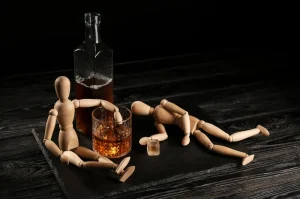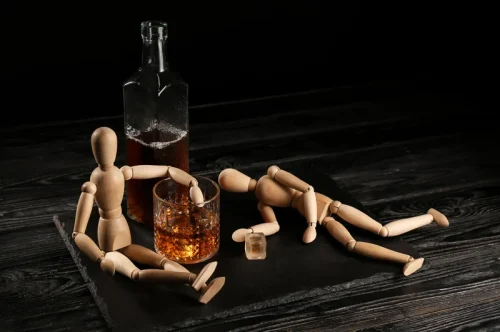
You weren’t planning for a headache, nausea, and endless trips to the bathroom to interrupt this party. Studies reveal that adult men and women should drink no more than four standard drinks on any one occasion. If you drink six to 10 standard drinks, this could lead to 600–1,000 mL of lost fluids, causing dehydration. Most reach for water to rehydrate, but in most cases that’s not enough to quickly and properly rehydrate you. Water doesn’t have enough electrolytes and/or vitamins to replace the electrolytes and vitamins lost due to dehydration.
Does Alcohol Dehydrate You? Understanding The Health Risks
- If you don’t drink enough water with alcohol, you risk becoming dehydrated quickly.
- Carry mineral tablets or liquid mineral drops with you for emergencies.
- Additionally, alcohol can impair the body’s ability to conserve water, leading to further fluid imbalance.
- This can lead to impaired judgment and increased risk-taking behavior, such as driving while under the influence.
- Since sweat is mostly made of water, your body needs to stay hydrated to help you stay nice and cool.
Fruits and vegetables contain lots of water, so feel free to munch on that slice of watermelon or whip up a smoothie for a quick and tasty way to replenish lost fluids. We take in a certain amount of water through the foods we eat. But we also lose water through breathing, sweating, and going to the bathroom. This is especially true in hot and humid weather when you will need more to stay hydrated.
Are you drinking enough water?
Over consumption of alcohol can create dehydration, causing havoc on your body the next morning. It’s essential to address dehydration promptly by replenishing lost fluids. When consuming alcohol, it’s especially important to be mindful of your hydration levels and take steps to stay adequately hydrated. The pituitary gland decides to do this based on signals sent from detectors that read the volume of water in the body, as well as its salt level. When dehydration is detected, a message is relayed and ADH is released. Alcohol convinces the pituitary gland that ADH shouldn’t be introduced into the situation, despite the alcoholic drink itself being made up largely of water.

Drink Water Before Drinking Alcohol
Alcohol-induced dehydration is more likely to occur if an individual drinks alcohol on an empty stomach or does not drink enough non-alcoholic fluids while consuming https://ecosoberhouse.com/ alcohol. People who are already at risk of dehydration should avoid or limit their alcohol consumption. When consuming alcoholic beverages, it’s important to limit your intake and stay hydrated by drinking water between cocktails. High sodium intake from salty foods leads to increased urine production.

- Alcohol convinces the pituitary gland that ADH shouldn’t be introduced into the situation, despite the alcoholic drink itself being made up largely of water.
- If you’re severely dehydrated, you may need IV fluids to get back on track.
- This can lead to dehydration, especially if adequate water intake is not maintained while consuming alcohol.
- Sodium and potassium concentrations were measured by V-Lyte IMT (Dimension Vista® 1500, Siemens Healthcare Global, Erlangen, Germany).
Being dehydrated can lead to some serious consequences, which we’ll investigate further. Let’s delve deeper into the science behind dehydration, how alcohol dehydrates us, and ways we can treat and avoid excessive dehydration from alcohol. Perhaps you dehydrated yourself while exercising or spending all day in the hot sun. Here we see a single drink administered, followed by a single spike in blood alcohol (the solid does drinking alcohol make you dehydrated line), and a single spike in urine flow (the black bars).
About Us

We expect that this minimizes the differences in gastric emptying and diuresis compared to the fasting state. We have deliberately chosen commercially available Sobriety drinks to increase the practical applicability. Future research, however, might consider matching the beverages in terms of the nutritional composition. A final limitation is that no blood measurements were included, and, therefore, we are not able to provide insights on the mechanism underlying the diuretic effects of alcohol.
Boost Your Immunity: Foods and Supplements for …
- Alcohol-induced dehydration can also decrease reaction time, making it more challenging to respond quickly to unexpected situations, such as sudden stops while driving or avoiding obstacles.
- Not only is staying well-hydrated key to your long-term health, but it can also help you avoid uncomfortable hangover symptoms.
- The key to making sure a night out doesn’t turn into a head-pounding hangover is to drink plenty of water throughout, Mieses Malchuk says.
Your body has detectors that can sense both the saltiness of your water, and the volume of the water. If these detectors reckon that you are dehydrated, they send a signal to the posterior pituitary gland, which starts pumping out ADH. The job of ADH is to stop you urinating, so you hang on to your precious water. In that case, drinking the wine is best if you want to survive.
Why does alcohol cause dehydration?
Following a high salt diet can contribute to dehydration by increasing water loss through the urine. Energy drinks slow fluid absorption in the gastrointestinal tract and increase urination. This can be especially harmful to people at a greater risk of dehydration, such as people exercising in hot environments.






